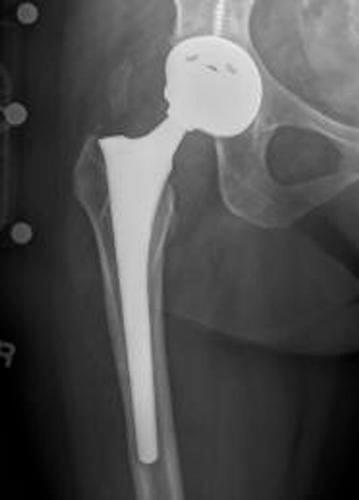Recipients of Hip Implants Strongly Encouraged to Receive MRI
Author: US Drug Watchdog
Published: 2014/03/14 - Updated: 2024/05/22
Publication Details: Peer-Reviewed, Announcement
Category Topic: Recalls, Warnings, Advisories - Related Publications
Page Content: Synopsis - Introduction - Main
Synopsis: US drug watchdog strongly encourages recipients of all-metal hip implants such as DePuy Pinnacle to immediately receive MRI for indications of failure. The inflammation on the joint linings caused by metal-on-metal hip implants can be seen in MRIs, which can tell doctors whether or not a hip implant is going to fail.
Introduction
The US Drug Watchdog is urging anyone who has received a DePuy Pinnacle all metal hip implant to contact their toll-free number 866-714-6466 as soon as possible. As the group would like to explain recipients of this type of hip implant, which have been discontinued due to high failure rates, may be able to find out if they will need a revision surgery based on MRI results.
Main Content
The US Drug Watchdog says:
"A study published in the Journal of Bone & Joint Surgery found that Magnetic Resonance Imaging (MRI) can help identify whether a all metal hip implant will need to be replaced based on the amount of tissue damage."
MRIs are used to get a closer, in-depth look of tissue in the body. MRIs are painless and provide a much more detailed look at soft body tissue.

The inflammation on the joint linings caused by metal-on-metal hip implants can be seen in MRIs, which can tell doctors whether or not a hip implant is going to fail.
Metal-on-metal hip implants like the DePuy Pinnacle implant can cause small particles of cobalt and chromium, types of metal, to be released in the body. These metal particles cause inflammation in the tissue and can lead to hip implant failure.
In the study referenced in the Journal of Bone & Joint Surgery, researchers were able to identify this inflammation in 68% of patients who experienced no symptoms at all and 75% in patients who reported pain.
The study related to all metal hip implants reported in May of 2013 indicated a MRI scan is important for those who have a all metal hip implant, even if they are not experiencing pain or other problematic symptoms. The MRI detects tissue damage, which frequently occurs before symptoms present themselves.
The US Drug Watchdog says:
"Most patients wait until pain is severe or until symptoms are uncomfortable to visit their doctors. They end up needing a revision and may have a more complicated revision as a result of the tissue damage that has already occurred."
A spokesperson from the US Drug Watchdog says:
"It's very important for anyone who has received a DePuy Pinnacle metal on metal hip implant to contact us immediately at 866-714-6466 for more information about getting a MRI examination. Waiting until it's too late can mean a more painful hip revision surgery if one is needed, and it could delay or even eliminate the amount of compensation hip implant patients may be entitled to."
DePuy Pinnacle U.S. District Court for the Northern District of Texas MDL Number 2244
Attribution/Source(s): This peer reviewed publication was selected for publishing by the editors of Disabled World (DW) due to its relevance to the disability community. Originally authored by US Drug Watchdog and published on 2014/03/14, this content may have been edited for style, clarity, or brevity.